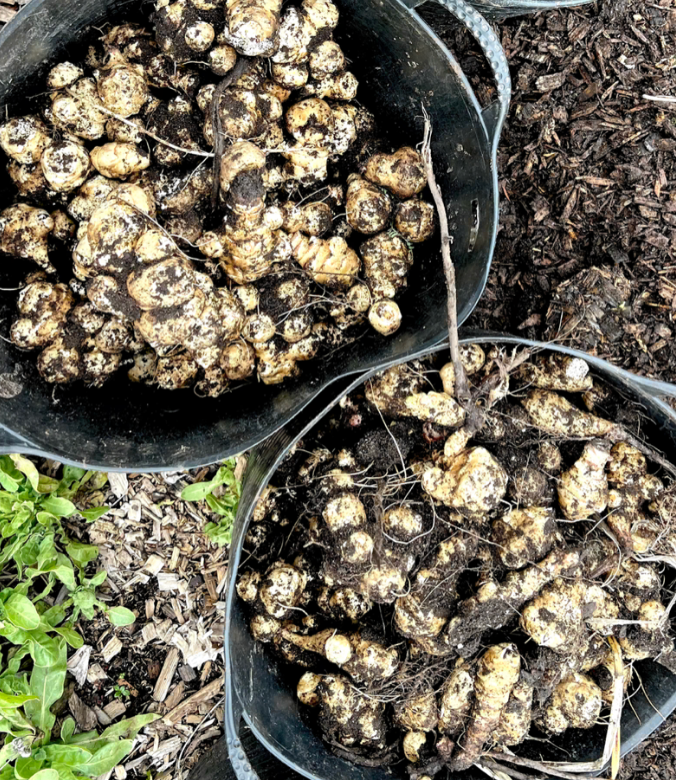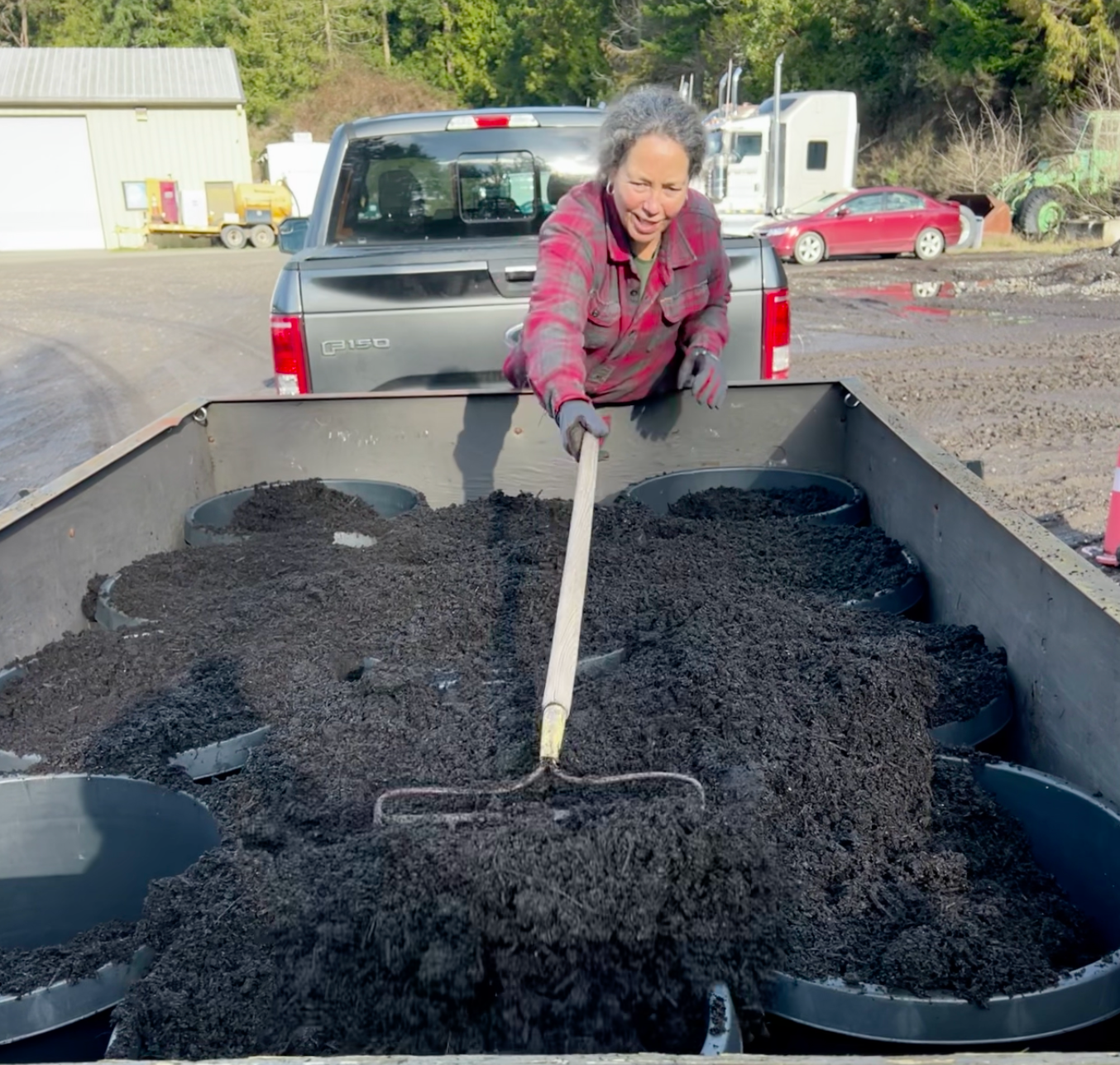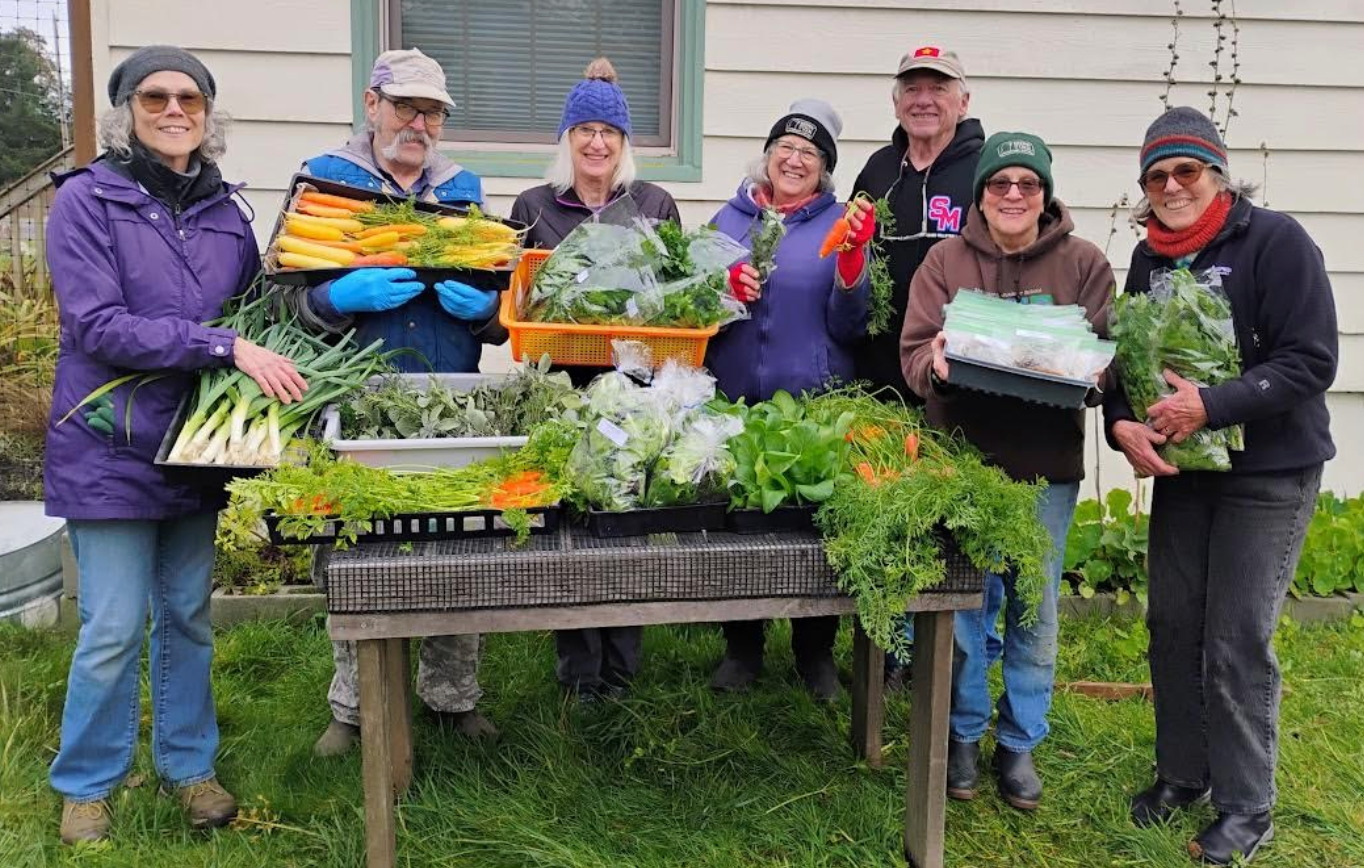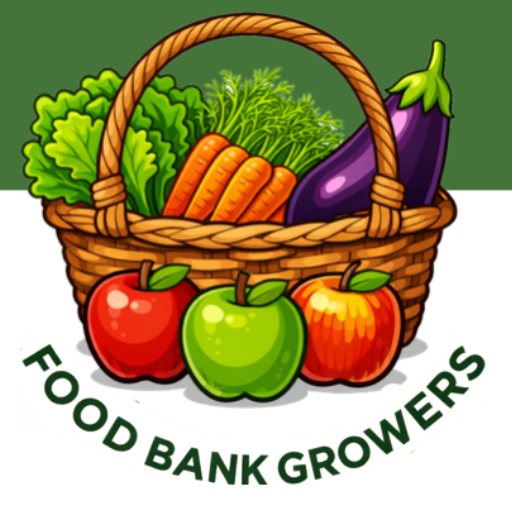August Newsletter 2025

Growing Fast!
In this month’s newsletter...
- Harvest & Gleaning Pounds, Plant Starts, and Hours
- Events and Announcements
- Plumtastic Sauce Recipe
- August In the Garden with Dianna
YEAR TO DATE STATS
3607 Pounds of Grown Produce
125 Pounds of Gleaned Produce
1058 Plant Starts Given Away
3792 Volunteer Hours
Due to the late spring, all gardens are lower in volume compared to prior years, however, that same late spring kicked off an early gleaning season for plums. Volunteer hours reflect many things that are growing, i.e. our commitment to each other and the community. Thank you all for your time, talents, and passion for fresh food.
Are you a self-starter? We need co-managers who can work along side the experts. Help us grow by volunteering here.
EVENTS and ANNOUNCEMENTS
FOOD FOR THOUGHT
Nature Always Wins: Gardening Strategies to Even the Odds
Tuesday, August 12, 2025,
6:30-7:30 p.m.
Free presentation at
Quimper Grange, 1219 Corona Ave PT
by Julia Cordz -- Julia will share tips on how to rodent and deer proof your garden and keep it off their “top ten” list of places to nibble.
Now on KPTZ Airdate July 3rd: In the Garden, with Julia Cordz, Barbara Faurot, Mary Beth Haralovich, and Dianna Wiklund. The show airs Thursday from 6-6:30pm.
RAISED BEDS INCREASED PRODUCTION
Read how the Quimper Grange Garden’s recent renovations have changed the way they garden.
HOW TO HAVE GREAT FRUIT EVERY YEAR
The PT gleaners do more than glean, they also maintain the fruit orchard at Blue Heron School. Read about their technique here.
PLUMTASTIC PLUM SAUCE
Janice Pastor makes the most of it with one sauce that fits all applications.
Get the Recipe here.
AUGUST IN THE GARDEN
By Master Gardener Dianna Wiklund
Weather
August is our warmest month with a high average of 67.8°F and a low of 55.4°F. It is looking like it will start off slightly cooler this year then warm up later in the month. Port Townsend's average rainfall is only 0.63" spread over 6.6 days. Although we may get more this year, it is still not enough for our veggies which need at least an inch of water each week.
Rosaceae
Many of the berries we love are part of the Rosacea family and can be treated similarly to other members of the family. Rosaceae includes various edible fruits, such as apples pears, quinces, apricots, plums, cherries, peaches, raspberries, blackberries, loquats, strawberries, rose hips, hawthorns, as well as almonds.
One of the things many of us forget is to keep watering our berries after they are harvested. Strawberry plants are currently putting on next year's buds, which are held closely in the center of the plant. The amount of water they get now determines how many berries they will have come on next spring. So keep watering. Raspberries are also in need of water to put on healthy canes for next year's fruit.
Planting
- Fall/Winter garden planting can continue this month with cool season varieties of many greens including lettuces, spinach, and turnips for greens. Root vegetables like beets, carrots, bunching onions and radishes can also be planted throughout August.
- You can still transplant out overwintering varieties of cabbage and cauliflower.
- Remember to interplant to use as much of your growing space as possible and get the most harvest you can. This also helps with weed suppression and retaining moisture.
Garden tasks
- Green beans and summer squash can be harvested every other day. Both need constant attention or they will get away from us. If we harvest our beans and squash and sprouting broccoli often, they will continue to put on more for us to harvest until the weather gets too cold for the plant to survive. Once a plant sets seed, the seeds mature in the pods and they will stop producing more flowers. If you let the pods go to a very large size, the plant will stop producing.
- Tomatoes and cucumbers are in full production. Like green beans, these plants too will give you a longer harvest if they are kept picked. Remember to remove lower leaves and densely packed leaves to keep the air circulating. This also helps avoid possible diseases.
- Remember to mulch well under your winter squash. A layer of straw can help keep weeds down, soil moist, and keep your squash up out of the dirt.
- You can harvest some new potatoes now but remember they will only keep for about a week. Be careful not to disturb the roots too much, so the rest of the potatoes will continue to grow.
- Early potato varieties may be ready soon. Once the plant dies back, stop watering for two weeks before harvesting to allow the skins to toughen up a bit. Rinse gently to remove most of the dirt and dry them well before storing the potatoes in a cool dark location.
- This is a good time to add a bit of compost to heavy feeders like squash and celery. Add an inch deep layer of compost spread around the roots to about 6 - 8 inches from the base of the plant. Don’t amend root veggies as it can make them very hairy.
With harvest in full swing it is sometimes hard to remember to stop in the garden, stretch and look around. The abundance given to us by the world is amazing: sunlight and good soil with water and a bit of attention we can gather in healthy, tasty produce. What a joy a garden can be and how joyful it is to share its bounty. This is truly a time to be thankful we live in such a glorious place.
Happy Gardening everyone.
Dianna
Dianna's Garden Consulting
(360) 643-0090 - send a direct text
Give a man a fish you feed him for a day.
Teach a man to fish you feed him for a life time.
Teach a person to garden and you feed their whole community.
Everyone is Welcome
We’re so grateful for our volunteers! Feel free to join us and explore opportunities to grow, glean, or help remotely. Just let us know what interests you, and we’d love to get you involved!




